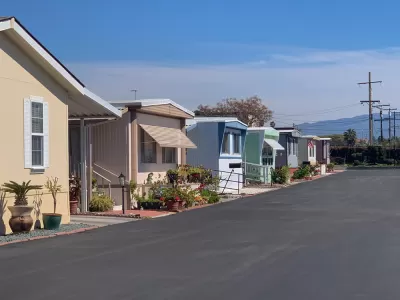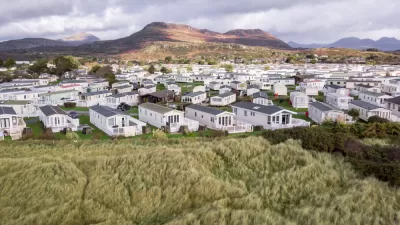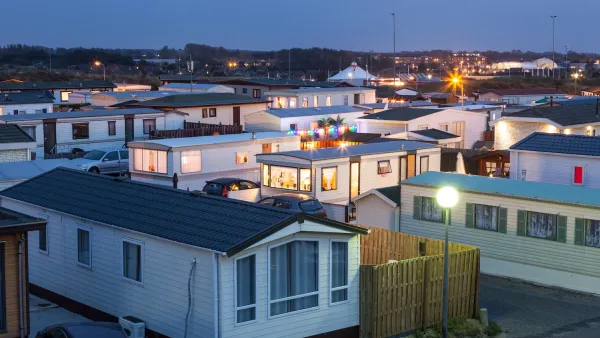Governments at all levels are finally waking up to the benefits of protecting and encouraging the production of factory-built homes, which offer an affordable, efficient form of housing that many Americans depend on.

As the country faces a shortage of roughly 3.8 million housing units, Erika Bolstad describes how factory-built homes could provide an affordable option for boosting construction and creating more affordable housing. “Because manufactured homes are built on an assembly line, they're less expensive and faster to construct. They're seen as essential for providing new housing, especially for lower-income buyers who may have been priced out of site-built homes or expensive rental markets,” Bolstad writes in Governing, noting that “The average factory-built home costs $106,000 to build, compared with $351,000 for site-built homes.”
Contrary to popular belief, these homes are held to rigid construction and safety standards, while the controlled environment of a factory means that components are built with precision and quality, according to Lesli Gooch, chief executive officer of the Manufactured Housing Institute.
Meanwhile, “The Biden administration's Housing Supply Action Plan released in May specifically supports the production of new manufactured housing and new ways of financing such homes.” Since then, some states and cities have relaxed zoning rules to permit manufactured housing in more areas. As Planetizen has noted in prior articles, manufactured home residents face a rising threat of displacement as real estate investors buy mobile home parks and raise lot rents. To combat this, some residents are banding together to purchase land, but still face obstacles in acquiring financing.
Bolstad also draws attention to efforts in some cities to preserve manufactured home communities and prevent the displacement of residents in favor of more profitable uses. “In Austin, Texas, a city facing rapid gentrification in some neighborhoods, the city rezoned mobile home parks in a way that prohibits them from being torn down and converted to other uses.” In Colorado, tenants of manufactured homes have the first right to the option to buy land if it’s put up for sale. The source article describes several other initiatives aimed at protecting current residents and preserving manufactured home parks as a key source of affordable housing.
FULL STORY: Factory-Built Homes Could Help Solve Housing Crisis

Montreal Mall to Become 6,000 Housing Units
Place Versailles will be transformed into a mixed-use complex over the next 25 years.

Planetizen Federal Action Tracker
A weekly monitor of how Trump’s orders and actions are impacting planners and planning in America.

DARTSpace Platform Streamlines Dallas TOD Application Process
The Dallas transit agency hopes a shorter permitting timeline will boost transit-oriented development around rail stations.

Interactive Map Reveals America's “Shade Deserts”
Launched by UCLA and American Forests to combat heat-related deaths, the tool maps the shade infrastructure for over 360 U.S. cities.

Bicycles and Books — In Sacramento, Libraries Now Offer Both
Adult library card holders can check out e-bikes and e-trikes for up to one week.

Colorado Landfills Emit as Much Pollution as 1M Cars
Landfills are the third-largest source of methane pollution in Colorado, after agriculture and fossil fuel extraction.
Urban Design for Planners 1: Software Tools
This six-course series explores essential urban design concepts using open source software and equips planners with the tools they need to participate fully in the urban design process.
Planning for Universal Design
Learn the tools for implementing Universal Design in planning regulations.
City of Mt Shasta
City of Camden Redevelopment Agency
City of Astoria
Transportation Research & Education Center (TREC) at Portland State University
US High Speed Rail Association
City of Camden Redevelopment Agency
Municipality of Princeton (NJ)





























